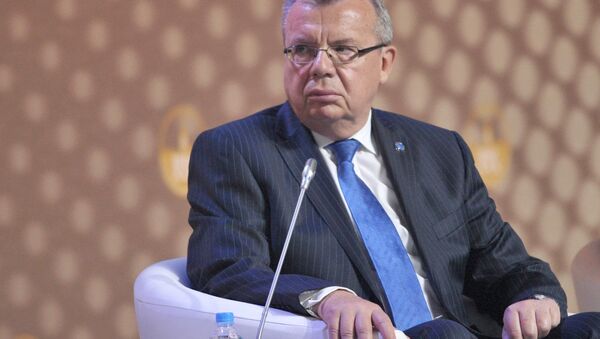Fedotov participated in the 15th Meeting of Heads of Special Services, Security Agencies and Law Enforcement Agencies held earlier in the day in Russian city of St. Petersburg.
"The terrorism threat has evolved and expanded, becoming increasingly decentralized and diffuse. Terrorism is now more of a threat to international peace and security than ever. Challenges range from the use of information technologies to spread violent extremist ideologies, to the flow of foreign terrorist fighters across borders," Fedotov said, as quoted in a UNODC press release.
He added that the expansion of the terrorist threat can be observed in the rapid growth of the Islamic State (IS), a terrorist organization outlawed in many countries around the world, including the United States and Russia, underlining that the group has not only inspired attacks around the world but has attracted large numbers of foreign fighters into their ranks, with significant numbers coming from Europe, South Asia and South-East Asia.
"Some of these fighters have left conflict zones after becoming disillusioned. However, others remain radicalized and retain both the intent and capability to conduct terrorist attacks in their country of origin or residence," Fedotov warned.
The UNODC aims to better equip governments to handle issues related to drugs, crime, terrorism, and corruption, as well as to maximize knowledge on these issues among governmental institutions and agencies.



